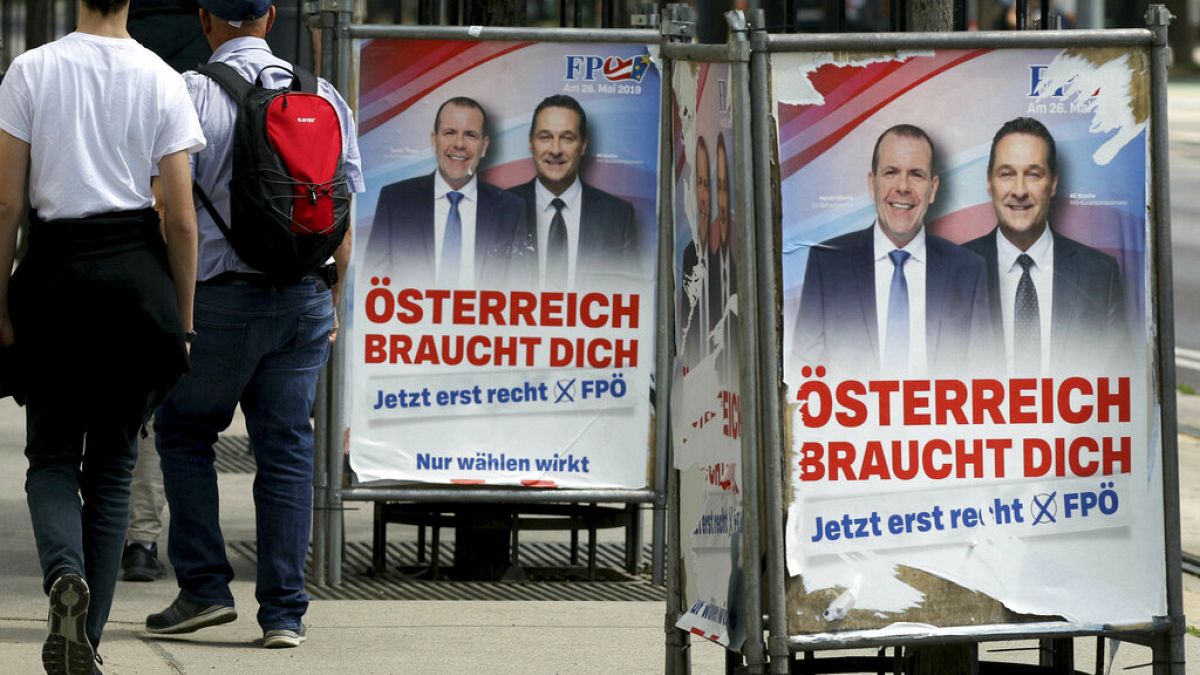In a forecast carried out for the country’s national broadcasters, the Freedom Party (FPÖ) will take a clear first place with 27% of the vote, marking the first time the party won a nationwide election.
The Austrian far-right party FPÖ is set to win the race for the alpine country’s 20 seats in the European Parliament, first exit polls show.
In a forecast carried out for the country’s national broadcasters, the Freedom Party (FPÖ) — whose MEPs will join the Identity and Democracy (ID) group — will take a clear first place with 27% of the vote, mark the first time the party won a nationwide election.
In the 2019 European Parliament elections, the conservative People’s Party (ÖVP) won big with seven seats. This year, it is set to be overtaken by the far-right FPÖ, which largely campaigned on an anti-immigration, anti-Green Deal and Eurosceptic platform.
FPÖ should have at least five MEPs this time around.
Exit polls show that the FPÖ was followed by Chancellor Karl Nehammer’s ÖVP with 23.5%, followed closely by the Social Democrats (SPO), who reached 23%.
The Greens, whose lead candidate Lena Schilling has been involved in tabloid scandals in recent weeks, are predicted to lose one of their three MEPs and take 10.5% of the vote.
Austria’s Communist Party (FPÖ) can still make it into the European Parliament. With a projected 3% of votes, it has a chance of gaining one MEP.
Questions remain over FPÖ’s Moscow connection
FPÖ, which campaigned in these elections with the slogan “Halt to the EU’s madness,” is no stranger to extreme political positions.
Originally chaired by a former Nazi official and SS officer after it was founded in 1956, it came to the fore during the leadership of Jörg Haider, who became known for his xenophobic and anti-Islam stances.
In recent years, the party’s connections to the Kremlin and a 2019 scandal in which its former leader was captured on camera promising government contracts to a woman pretending to be the niece of a Russian oligarch led to its reputation being tarnished once again.
Earlier in April, its leader, Herbert Kickl, was accused of involvement in a Russian spy scandal when the country’s Greens party flung allegations at him and FPÖ, calling it “an extension of Russia’s arm” in Austria.
Its success in the European elections may indicate a bigger win in the country’s legislative elections in September. Its win could fuel hope for its leader Herbert Kickl’s victory in national elections, in which it is currently leading in polls.

